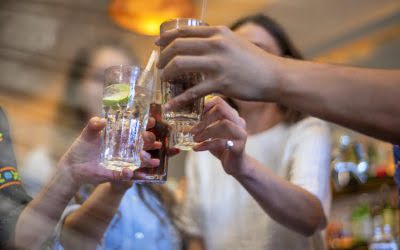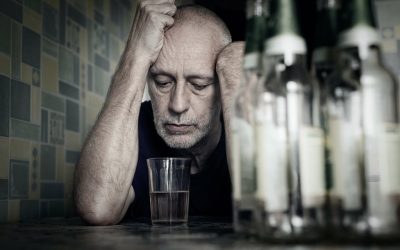This period lasts about a week for most people, barring those with severe addiction. The circadian rhythm – the innate biological clock that manages our sleep-wake cycle – holds a crucial role in this narrative. Alcohol is known to disrupt this rhythm, altering our sleep patterns when consumed in excess. When you quit alcohol, the disrupted rhythm doesn’t instantly revert to normal – it takes time to normalize. This altered sleep architecture during alcohol withdrawal is considered a contributor to relapse, as individuals may Sober living house use alcohol in an attempt to restore sleep normality.

Consider Your Personal Metabolism

Your body’s internal clock, or circadian rhythm, is regulated by melatonin. Alcohol disrupts the production of melatonin, making it harder to fall asleep naturally. A 2013 study published in the Sleep Medicine Reviews showed that even moderate alcohol consumption reduces why cant i sleep after drinking melatonin levels by up to 20%.
How to get a good night’s sleep
- If you’re relying on alcohol to fall asleep, you should seek out healthier alternatives.
- Yes, red wine can relax the lower esophageal sphincter, leading to acid reflux, which can disrupt sleep.
Hangover sleep can be improved by incorporating relaxation exercises and breathing techniques. Progressive muscle relaxation, where you systematically tense and relax different muscle groups, can help reduce physical tension and promote a sense of calm. Deep breathing exercises, such as the technique (inhale for 4 counts, hold for 7, exhale for 8), can help slow your heart rate and induce a more relaxed state conducive to sleep. Alcohol also affects people with central sleep apnea (CSA), which occurs when the brain periodically stops sending certain signals involved in breathing. Alcohol interferes with the brain’s ability to receive chemical messages involved in breathing, which decreases the body’s respiratory drive and increases the likelihood of pauses in breathing.
Lifestyle Quizzes
This paradoxical condition affects a significant portion of individuals who indulge in alcohol, with studies suggesting that up to 50% of people may experience sleep issues during a hangover. To comprehend why hangover insomnia occurs, it’s essential to understand how alcohol impacts our sleep https://edviceacademy.com/family-support-in-addiction-recovery-vital-roles/ cycles and overall sleep architecture. While alcohol may initially induce drowsiness and help you fall asleep faster, its effects on sleep quality are far from beneficial.
More in Health
- Drinking alcohol relaxes the muscles around your throat, making you more likely to snore too.
- If you are experiencing sleep problems, be sure to talk to your doctor about your options.
- Other nutrients that can be in short supply thanks to alcohol are vitamin c and zinc.
- Thakkar’s study shows that alcohol inhibits the cellular uptake of adenosine, which leaves more adenosine floating around outside your cells.
Yes, most people see significant improvements in sleep quality within 1-3 months of sobriety. Research in the Journal of Addiction Medicine shows that subtle sleep architecture changes may last longer, but most report substantial improvements by 90 days of abstinence. The brain heals, allowing natural sleep patterns to return with continued sobriety.
Alcohol withdrawal insomnia is so common that it is one of the diagnostic criteria for alcohol withdrawal. Insomnia from alcohol withdrawal is likely to persist through the initial period of abstinence. Insomnia after alcohol withdrawal may, in some cases, persist for months or years. Insomnia is one of the largest setback triggers for people in recovery from an alcohol use disorder.